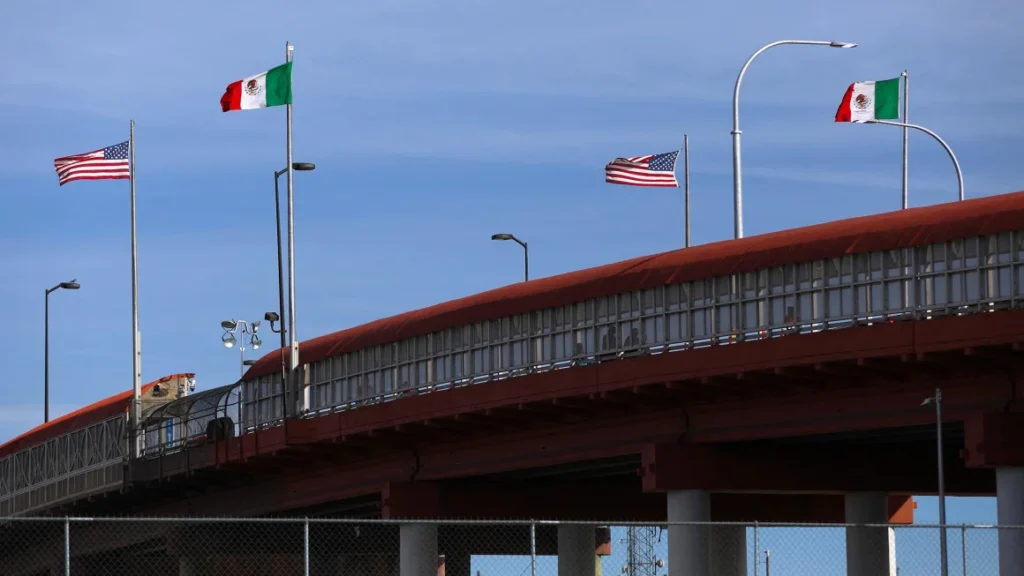
Trudeau’s Political Crisis can be dangerous for Trudeau’s leadership. Canadian Prime Minister Justin Trudeau is facing an unprecedented political crisis following the shocking resignation of his longtime ally, Finance Minister Chrystia Freeland, on Monday. Freeland, who had served as both Deputy Prime Minister and Finance Minister, announced her departure after a reported falling out with Trudeau over key policy disagreements. The resignation marks a significant shift in the government and raises serious questions about the future of Trudeau’s leadership and his Liberal Party.
A Deepening Rift Within the Liberal Cabinet
The news of Freeland’s resignation sent shockwaves through Canada’s political landscape. In her resignation letter, Freeland explained that she and Trudeau had been at odds over the best way forward for the country, particularly regarding the government’s fiscal policy. The immediate flashpoint came over the controversial proposal for a two-month sales tax holiday and direct financial support to Canadians in the form of $250 checks. Freeland, known for her cautious fiscal approach, opposed these measures, arguing that Canada should remain financially prudent in light of the looming threat of tariffs from the United States under President-elect Donald Trump.
Freeland expressed concerns that “costly political gimmicks” would undermine Canada’s ability to deal with the pressing challenges ahead, including potential tariffs on Canadian goods. “Our country is facing a grave challenge,” she wrote, warning that Canada needed to “keep our fiscal powder dry” in preparation for a potential trade war with the U.S. Her letter made it clear that, in her view, staying in the Cabinet under these circumstances was no longer an option.
The timing of Freeland’s resignation is particularly critical. As chair of a Cabinet committee on U.S. relations, she was expected to deliver the fall economic statement, which could have included measures to protect Canada from Trump’s threatened 25% tariffs. With Freeland’s departure, the government faces a leadership vacuum at a time when Canada is confronting significant economic challenges and heightened uncertainty on the world stage.
A Struggling Government and a Divided Party
Freeland’s resignation comes at a particularly fraught moment for Trudeau’s government, which is already navigating a political minefield. Although Trudeau has insisted that he plans to lead the Liberal Party into the next federal election, some within his own party have questioned his ability to secure a fourth term. The resignation of such a key figure as Freeland only deepens the sense of instability within the Liberal ranks. Due to Trudeau’s Political Crisis, the Justin Trudeau govt. is not remain peacefully.
Opposition leader Pierre Poilievre wasted no time in seizing on the chaos, claiming that Trudeau’s government is losing control at the worst possible time. “Justin Trudeau has lost control, but he’s hanging onto power,” Poilievre said, highlighting the vulnerability of the government as tensions with the U.S. escalate. With Trump poised to impose tariffs that could severely affect Canada’s economy, the opposition is making the case that the government is too weak and divided to confront this challenge effectively.
Ontario Premier Doug Ford also weighed in, describing the situation in Ottawa as “chaos.” He suggested that the federal government was failing to project the strength needed to navigate the turbulent political and economic waters ahead. Due Trudeau’s Political Crisis, a big chance can be get to other opposition.
The Legacy of Chrystia Freeland
Freeland’s resignation is particularly striking because of her prominence within the Trudeau government. For much of her tenure, she was seen as one of the most powerful and loyal members of the Cabinet, with many speculating that she could one day succeed Trudeau as party leader and Prime Minister. Freeland’s departure represents a major blow to Trudeau’s inner circle and raises questions about the future direction of Canadian politics.
Political analysts have referred to Freeland’s resignation as a “political earthquake.” Daniel Béland, a professor of political science at McGill University, noted the significance of Freeland’s decision to publicly criticize the Prime Minister hours before she was set to deliver a critical economic statement. “This is clearly a minority government on life support,” Béland said, emphasizing that the resignation could force the New Democratic Party (NDP) to reconsider its support for the Liberal government.
Looking Ahead: Can Trudeau Recover?
The fallout from Freeland’s resignation is still unfolding, and it remains to be seen how it will affect Trudeau’s leadership prospects. As his government grapples with internal division and the looming threat of U.S. tariffs, Trudeau will need to find a way to stabilize his administration and regain the confidence of Canadians.
With the federal election looming by October, Trudeau’s ability to rally support within his party and from the public will be put to the test. Meanwhile, the prospect of former Bank of England Governor Mark Carney joining the Cabinet has added an element of intrigue, though it remains unclear whether Carney will take on a formal role in government.
One thing is clear: Canada is facing a moment of political uncertainty, and how Trudeau navigates this crisis will define the future of his leadership and the Liberal Party.
For read specific news visit again https://khudaniajournal.com

